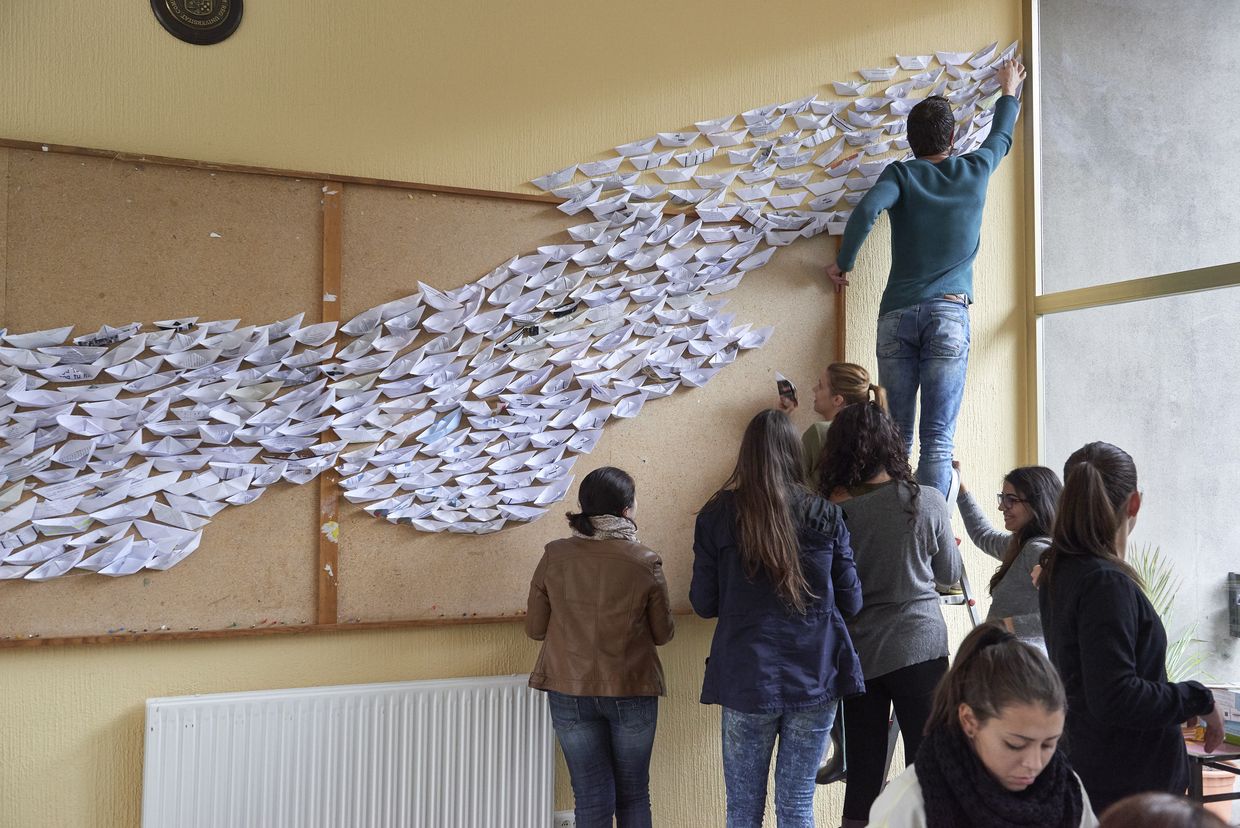Mobility
La movilidad de los/as estudiantes está regulada a través del “Reglamento de intercambios interuniversitarios”. A través de la Oficina de Relaciones Exteriores se gestionan programas de intercambio tanto nacionales (SICUE), como europeos (ERASMUS) y extracomunitarios (intercambios con países de América Latina o países de habla inglesa):
Portal Internacional
Internships
2ª edición
Las Prácticas se distribuyen en dos períodos con la intención de aprovechar su potencial al largo de la formación de los estudiantes. Los períodos de Practicum propuestos se desarrollan progresivamente conforme a la siguiente secuencia:
a. PRACTICUM I (18 créditos. 3º curso, 5º cuatrimestre): El sentido general de este Practicum es centrarse en la observación en torno a la vida del aula y a las tareas del profesorado, el proceso del aprendizaje de la tarea docente, los proyectos y prácticas desarrollados en el centro escolar y en su contexto, así como en el proceso de aprendizaje en la enseñanza.
b. PRACTICUM II (24 créditos. 4º Curso 8º cuadrimestre): el sentido general de este Practicum es centrarse en los proyectos y prácticas desarrollados en el centro escolar y en su contexto, y en el proceso de aprendizaje de la enseñanza y en los procesos de avance de aula y centro. A lo largo del Prácticum II el alumno deberá realizar un Proyecto de trabajo vinculado a la mención, al que se le otorga un valor de 6 créditos del total de 24 que comprende este Prácticum.
1ª edición
Las Prácticas se distribuyen en tres periodos con la intención de aprovechar su potencial a lo largo de la formación de los estudiantes. Los periodos de Practicum propuestos se desarrollan progresivamente conforme la siguiente secuencia:
a. PRACTICUM I. Vida de aula y tareas del profesorado. (12 créditos. 2º curso, 3ºcuatrimestre): El sentido de este Practicum es centrarse en las tareas que el docente realiza en relación al contexto inmediato del aula, así como en analizar y reflexionar sobre lo que allí acontece. Será requisito tener superados al menos 48 créditos del primer curso.
b. PRACTICUM II. El centro escolar y su contexto: proyectos y prácticas. (18 créditos. 3º Curso 6º cuatrimestre): contextualizando las prácticas del docente en un centro y una localidad, se trata de diseñar, desarrollar y evaluar proyectos de centro y de aula y de comprender que los límites de la función del profesor no están delimitados por el espacio físico inmediato en el que trabaja habitualmente con los alumnos y que forma parte de un equipo docente, por lo que debe estar atento al conjunto de la Comunidad Educativa, siempre desde una actitud crítica y reflexiva. Se procurará, en la medida de lo posible, que el alumnado realice, uno de estos dos periodos de prácticas en el ciclo 0-3. Será requisito tener superados al menos 48 créditos del segundo curso, entre los que se incluyen necesariamente los del Practicum I.
c. PRACTICUM III. Procesos de mejora de aula y centro. (12 créditos. 4º curso, 7º cuatrimestre): En este último practicum se trata de enfatizar el perfil de maestro innovador, reflexivo e investigador, añadiendo al trabajo en los periodos anteriores elementos de mejora de proyectos de centro y aula en procesos de investigación-acción. Será requisito tener superados al menos 48 créditos del tercer curso, entre los que se incluyen necesariamente los del Practicum II.
